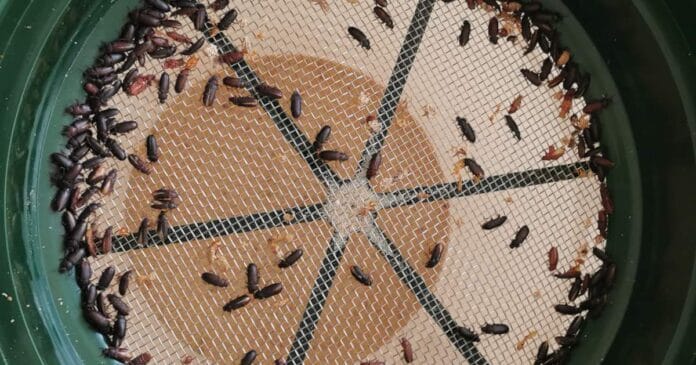Darkling beetles, the adult form of mealworms, wreak a heavy toll on the poultry industry. But hemp-based pesticides may play an important role in controlling them.
Fayetteville State University (North Carolina) Biology Professor Dr. Shirley Chao has been heavily involved in researching safer pesticides that target specific pests while minimising impact on other species and the wider environment. An experiment over a decade ago involving students picking an insect and determining an optimal feed formulation had some unexpected results.
One student chose hemp as a feed. While the insects appeared to thrive on a hemp diet, they never fully developed into adults or were deformed and died — and the connection was made. Dr. Chao and her team pursued related research and developed a couple of hemp-based pesticides.
A target species is the darkling beetle, which has a major impact on the USA’s poultry industry. The beetles are attracted by feed — they not only eat and contaminate it, but infest the birds as well and can transmit disease. Current conventional pesticides are too dangerous to use among poultry; particularly given the birds like to eat darkling beetles.
Dr. Chao’s hemp-derived pesticides are not only effective against darkling beetles without harming poultry, but also flies, cockroaches and other insect pests.
In May this year, Dr. Chao’s project received funding under the NCInnovation program, and according to Spectrum News, Chao and her team are readying build a breeder house along with a broiler (meat chicken) house in rural North Carolina to commence field tests on their insecticides. Assuming those tests are successful, the formulas will be required to undergo toxicity testing before being registered with the EPA.
“We want to establish our pesticide as a viable product and partner with North Carolina companies to help bringing it to market,” said Dr. Chao earlier this year.
The North Carolina Poultry Federation says the leading commodity in the state is poultry, an industry that contributes more than USD $39.7 billion to the state’s economy, and creates nearly 150,000 jobs. The state has more than 900 million broilers (meat chickens) in production, and is number 9 nationally for table egg production.
Pesticides are just one of the myriad potential uses for industrial hemp.


